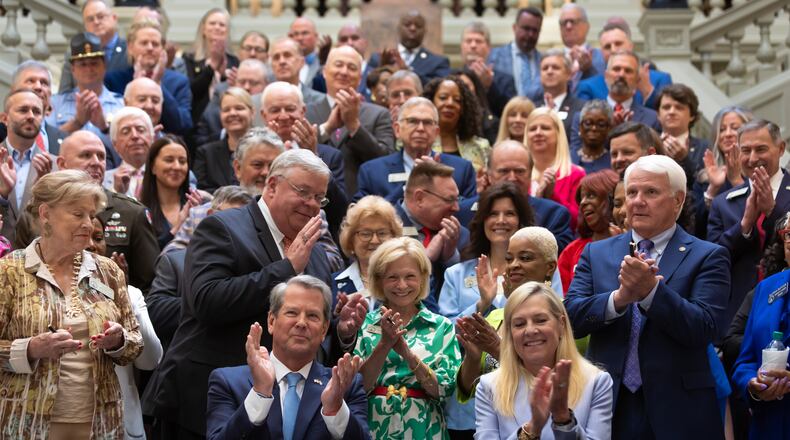State tax collections were down for the fourth consecutive month in May and are off nearly $368 million for the fiscal year that ends in two weeks.
Still, the state is expecting another massive surplus because Gov. Brian Kemp estimated the revenue picture would be much worse due to a slowing economy. Because of that, lawmakers had to keep a lid on spending and used reserves to fund projects, giving the state a financial cushion.
So while collections have been spotty for months, state finances remain in great shape ahead of a new fiscal year starting July 1 that will bring raises to 300,000 teachers and other state employees.
Kemp and the Department of Revenue reported Friday that overall collections were off 1.1% in May compared with May 2023 and are down 1.2% for the fiscal year, which ends June 30.
Individual income tax collections were off 3.3%, and net sales tax collections were up only slightly. Corporate income tax collections were off 35% from May 2023.
Most of the state’s revenue to help pay for K-12 schools, colleges, public health care, prisons, policing, roads and other services comes from income and sales tax collections.
For the first 11 months of the fiscal year, income tax collections are down 6.3%.
The state Department of Labor announced record employment numbers in Georgia last month, and Kemp has been bullish on the state’s economy while at the same timing warning for more than a year about a potential slowdown. Robert Buschman, the state’s fiscal economist, predicted in January a mild recession in the first half of the year.
While the recent revenue news isn’t great, Kemp assumed it would drop closer to 7% during fiscal 2024, which limited how much lawmakers could appropriate. Lawmakers can’t spend more money than the governor projects will come in during a fiscal year.
Because the revenue decline is not as great as Kemp projected, the state may wind up with a surplus of $2 billion to $3 billion for the fiscal year.
That’s familiar territory for the state. Because Kemp’s revenue estimates were below what was coming in every year during the boom period following the end of the COVID-19 shutdown in early 2020, spending was held down and the state saw huge surpluses for three consecutive fiscal years.
The state began 2024 with roughly $16 billion in “rainy day” and undesignated reserves. Kemp and lawmakers spent $2 billion of that to help fund a record midyear budget during the 2024 legislative session, but the state could wind up with the same reserves — or more — after all the books are closed on fiscal 2024.
About the Author
Keep Reading
The Latest
Featured


